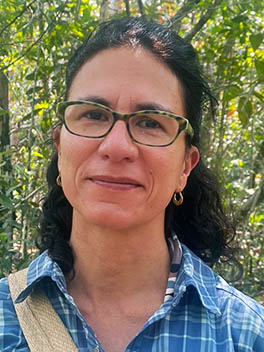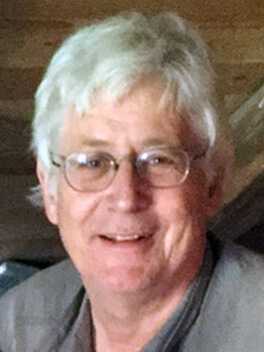Keynote Speakers

Claudia M Leal, Universidad de los Andes, Colombia
25 August 2023 | 11:15am-12:45pm | UniS – S003
Tenacious: An alternative history of dogs from across the ocean
Claudia Leal was born and raised at 2.600 meters in Bogotá, Colombia, where she is full professor at the Department of History and Geography at Universidad de los Andes; currently, she is also global faculty at the University of Cologne in Germany. She doubles as geographer and historian, and uses an environmental lens to explore old historical questions, such as state formation and the building of freedom in the aftermath of slavery. She researches national parks, forests, water management, and animals mostly in her home country, while also contributing to build a general environmental history of Latin America.
Abstract
Spaniards who arrived in the Americas used the word gozque to scorn native dogs, who reminded them of similar ones from home whose insignificance made them unfit to be designated with the real name. These and other creatures who have been called so—and tolerated, cherished, and persecuted—have been part of human lives and environments across centuries. The tenacity of these underdogs has made them historical actors who can shed light on the conundrums of sharing a planet in peril.

Jon Mathieu, University of Lucerne
22 August 2023 | 11:15am-12:45pm | UniS – S003
Sacred Mountains. Environmental History and Religion
Jon Mathieu is Editor-in-chief of the journal "Histories", and Professor Emeritus of History at the University of Lucerne. He was the founding director of the Institute of Alpine History at the University of Ticino and has published widely about the history of mountain regions, e.g. The Third Dimension. A Comparative History of Mountains in the Modern Era (2011); The Alps. An Environmental History (2019); Mount Sacred. A Brief Global History of Holy Mountains Since 1500 (2023).
Mount Kailash in Asia, the Black Hills in North America, Uluru in Australia: around the globe, numerous mountains have been and continue to be attributed sacredness. This lecture looks at the cultural diversity of sacred mountains and situates their exploration both in recent research and in ecological policy and practice. How should we deal with religion as environmental historians?
→ Mount Sacred. A Brief Global History of Holy Mountains Since 1500 (english)
→ Mount Sacred. Eine kurze Globalgeschichte der heiligen Berge seit 1500 (deutsch)
Plenary Roundtable
Environmental History and Public Policy
Followed by a series of Science for Policy Workshops
23 August 2023 | 11:15am-12:45pm | UniS – S003
With the climate and biodiversity crisis, and the ongoing pandemic, there has been increasing interest on the part of public policy actors across the globe to draw on environmental science in responding to the emerging threats and in implementing the green transformation. This growing interest, and the current global crisis, is also a call to arms for environmental historians. However, like most of the humanities, our community’s engagement with public policy making has been very limited and we lack both the experience and visibility needed to become partners in the process of policy development. The aim of the plenary discussion and of the workshop series that will follow it in the course of the ESEH 2023 is to provide a strong impetus for the environmental history community to engage with public policy in Europe and beyond.
The plenary is sponsored by EnvHist4P.
Speakers
- Raphael Bucher, Head of Climate Policy Section, Federal Office for the Environment FOEN, Swiss Confederation
- Frances Colon, Centre for American Progress and the President’s Council of Advisors on Science and Technology (USA)
- Pedro Conceição, Director of the Human Development Report Office, United Nations Development Programme
- Chloe Hill, European Geosciences Union, Policy Manager
- Karin Ingold, Chair of Policy Analysis and Environmental Governance (PEGO) and Vice-President of the Oeschger Centre for Climate Change Research (OCCR)
- Plenary chair: Cecilia Flocco, Leibniz Institute DSMZ- German Collection of Microorganisms and Cell Cultures, Germany
- Plenary chair: Adam Izdebski, Max Planck Institute of Geoanthropology, Jena, Germany
Plenary Structure
The plenary session is conceived as a meeting platform for environmental historians and policy stakeholders. It will be the forum for environmental historians to showcase their work and engage with the feedback from politicians and policy-makers, and to foster new, more practically oriented debate within our community. The plenary will last 90 minutes and will consist of three parts:
1) Lightning talks by selected environmental historians:
- Davide Orsini (Rachel Carson Center ) – «Energy and climate crises: the eternal return of nuclear power and the question of containment»
- Simone Müller (Augsburg) – «Toxic Commons. Why the Chemical IPCC needs the Humanities»
- Karla Garcia (Bielefeld) – «Rights of Nature»
- Amanda Power (Oxford) – «Why historians are essential to public policy-making for climate adaptation»
- Joschka Meier (Bern) – «Skiing, Switzerland and Sustainability: Learning from the past to adapt to the future»
2) Feedback discussion with the plenary speakers
3) Open debate between the public and the speakers
Science for Policy Workshops
Throughout the conference, the plenary speakers will offer workshop sessions on how to engage with policy in different institutional and thematic contexts.
→ 0613-495: Introduction to Science for Policy
→ 1012-496: UN & development policy

